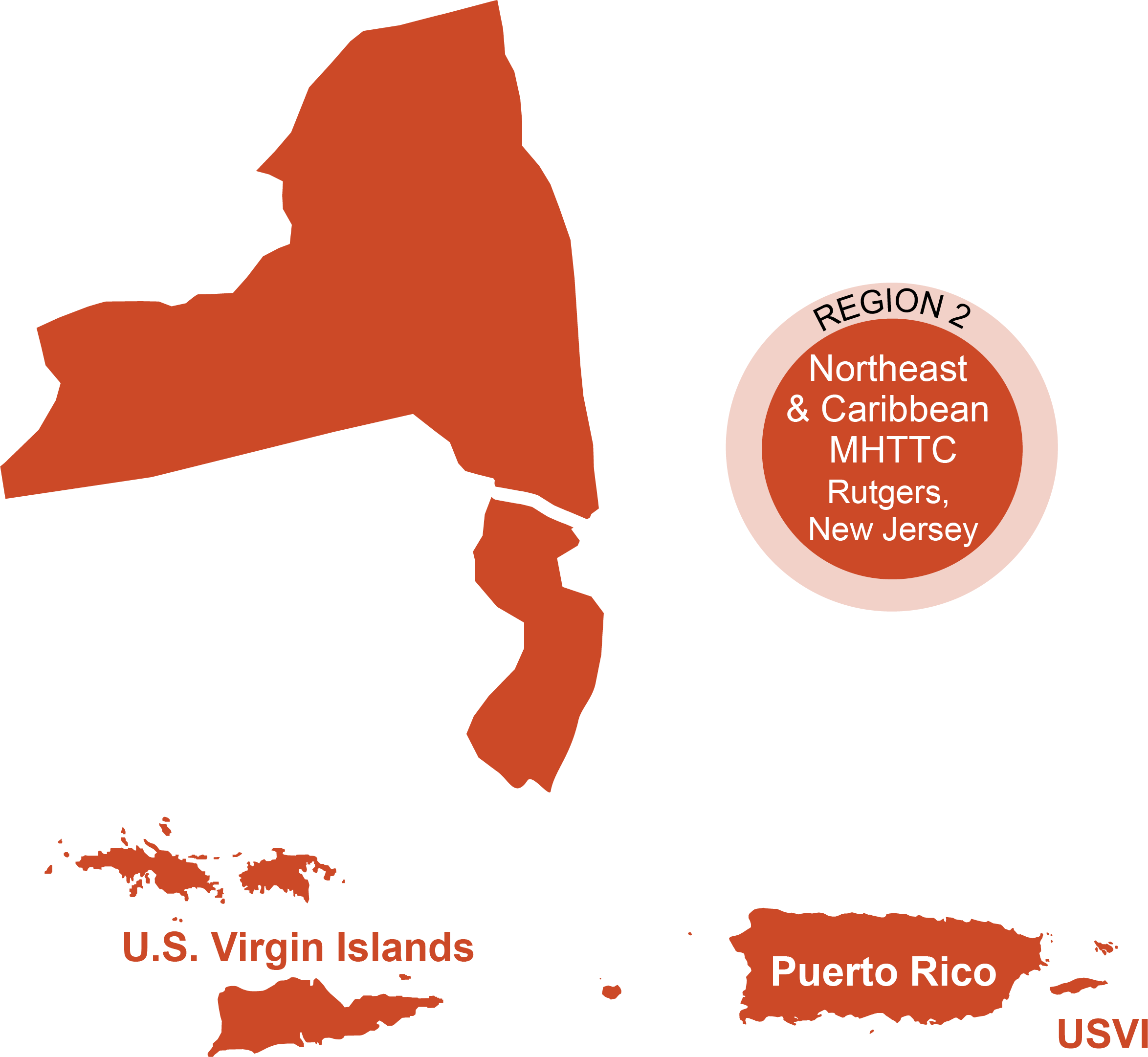Home > MIC Stories: Supporting the Mental Health of Puerto Rican Youth

MIC Stories (MHTTCs Implementing Change) feature technical assistance projects that had a significant impact on practice.
Puerto Rican teenagers have unique mental health needs due to the traumatic events that have occurred since 2017 (e.g., Hurricanes Irma and María, ongoing earthquakes and aftershocks starting in 2020, the COVID-19 pandemic). One way that the Comprehensive Adolescent Health Services (SISA, in Spanish) Program of the Puerto Rico Department of Health is helping to serve teenagers, is through a youth promoters program, in which youth aged 10 to 14 (6-8th grade) serve as “peers teaching peers” and provide messages promoting good health and the prevention of risky behaviors in school, the community, and/or within their families. The SISA Program identified that their coordinators, who represent Puerto Rico’s school regions and educate youth promoters, needed more education and training on youth mental health.
Starting in September 2021 (and currently ongoing), the Northeast and Caribbean MHTTC has provided technical assistance on youth mental health to the SISA Program and their coordinators, with the ultimate goal of boosting mental health awareness across Puerto Rican youth.
This work has taken place in Puerto Rico in collaboration with the Puerto Rico Department of Health and SISA program coordinators who work within their school regions as counselors, teachers, social workers, or administrative personnel. The needs of the Puerto Rico Department of Health and our Center's commitment to the Puerto Rican community brought us together to take action on addressing mental health awareness across Puerto Rican youth communities.

Through our collaboration with the Puerto Rico Department of Health, our Center established a virtual program introduction session with the SISA Program health promoters division. From there, an informal local needs assessment was conducted with the SISA Program coordinators to identify the mental health topics on which they needed training, with the purpose of having the coordinators increase the promoters’ mental health knowledge.
To date, our Center has provided learning sessions, consultations, and a total of 4 face-to-face and virtual seminars to the SISA Program coordinators, administration, and members of the Department of Health. These seminars are based on evidence-based practices that will help provide skills to the coordinators to increase their knowledge of mental health in youth. The seminars have included the following:
Due to the COVID-19 pandemic, the seminars we have led have had their dates occasionally moved, were presented virtually instead of in-person, and have been provided in separate shorter sessions, divided by topic, rather than longer virtual sessions. In addition, staff turnover within the SISA program has decreased the number of participants involved in our trainings from 14 coordinators to 7.
To evaluate this project, a survey was disseminated to participants to obtain feedback about satisfaction with and quality of the training and technical assistance our Center has provided. Qualitative feedback has also been collected. Selected quotes from participants are highlighted below:
“Being able to have the Northeast & Caribbean MHTTC and Dr. Sanabria available to increase our knowledge on youth mental health during this semester made us feel safer.”
“The assistance and knowledge that was provided by the Northeast & Caribbean MHTTC was key in providing the support that the promoters needed.”
The SISA coordinators have also reported that, thanks to the technical assistance provided by the MHTTC Network, they are more knowledgeable about various mental health topics, such as the loss of students and teachers to suicide. Promoters are now more prepared to face the youth mental health needs in their community and recognize signs of psychologic needs in their peers.
The Northeast & Caribbean MHTTC will continue providing technical assistance to the SISA Program to continue to enhance their knowledge in evidence-based practices that support youth mental health across numerous topics of interest. Additionally, we will continue to promote mental and physical well-being, which may help in the reduction of suicides, and recognition of Puerto Rican youth needing mental health services. Next steps also include the development of a compendium containing the strategies provided in seminars, for use with future coordinators.
During the process of providing technical assistance to the SISA Program, a series of events occurred on the island including deaths by suicide, and an increase in COVID-19 infections and violence (gender, domestic, and psychological). The scope of the program and our training services had to be modified to provide individual consultations to coordinators and more intensive technical assistance around the events taking place at the time. Through this experience, it has become more evident just how important it is for our Center to offer some flexibility in our training and technical assistance activities to promptly respond to emerging needs and priorities and ensure we meet our participants where they are.

The Northeast and Caribbean MHTTC islocated at Rutgers School of Health Professions, in the Department of Psychiatric Rehabilitation and Counseling Professions, and serves New York, New Jersey, Puerto Rico, and the US Virgin Islands. The Northeast and Caribbean MHTTC provides training, technical assistance, and resource dissemination to support and enhance the mental health workforce.
Funded by the Substance Abuse and Mental Health Services Administration (SAMHSA), the Northeast and Caribbean MHTTC works with organizations and practitioners who provide mental health services to strengthen their capacity to deliver effective, evidence-based interventions and offer the services listed below.